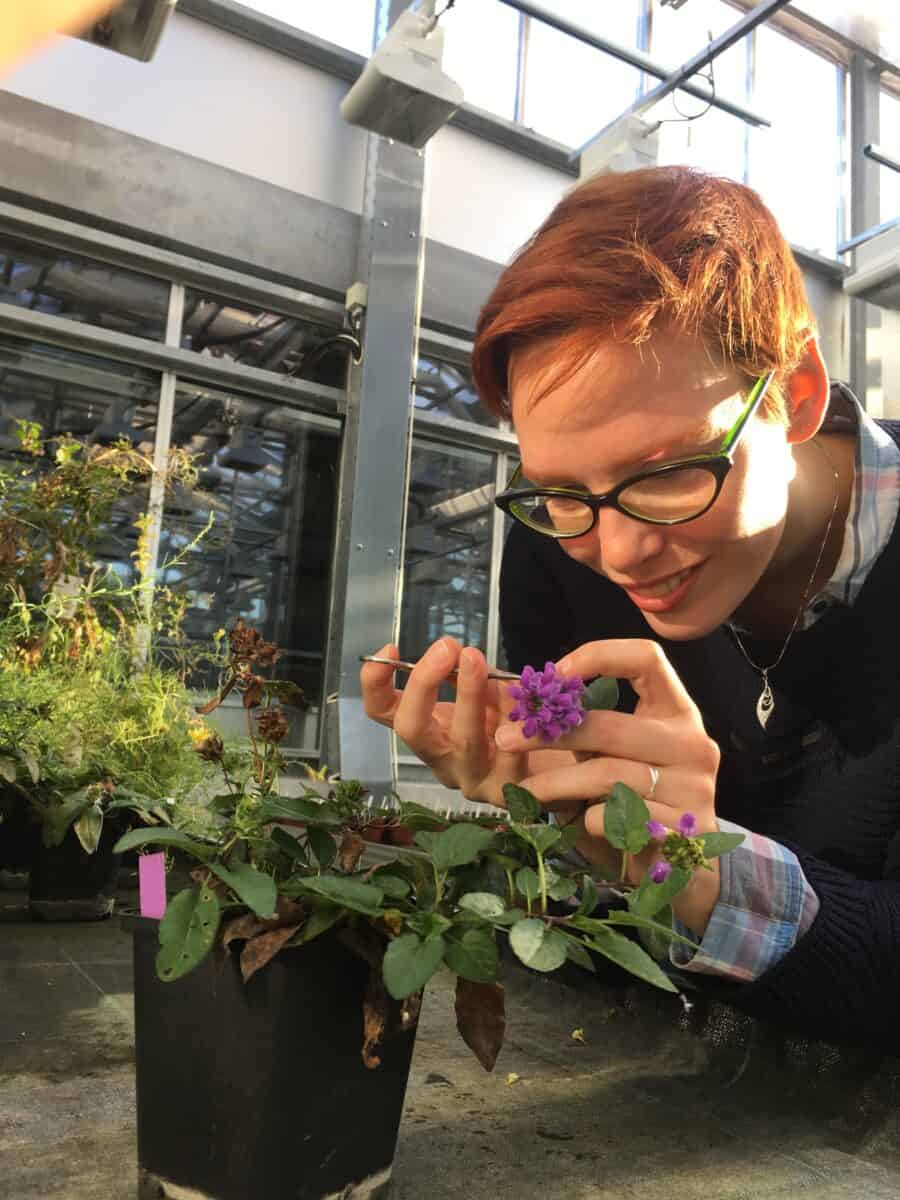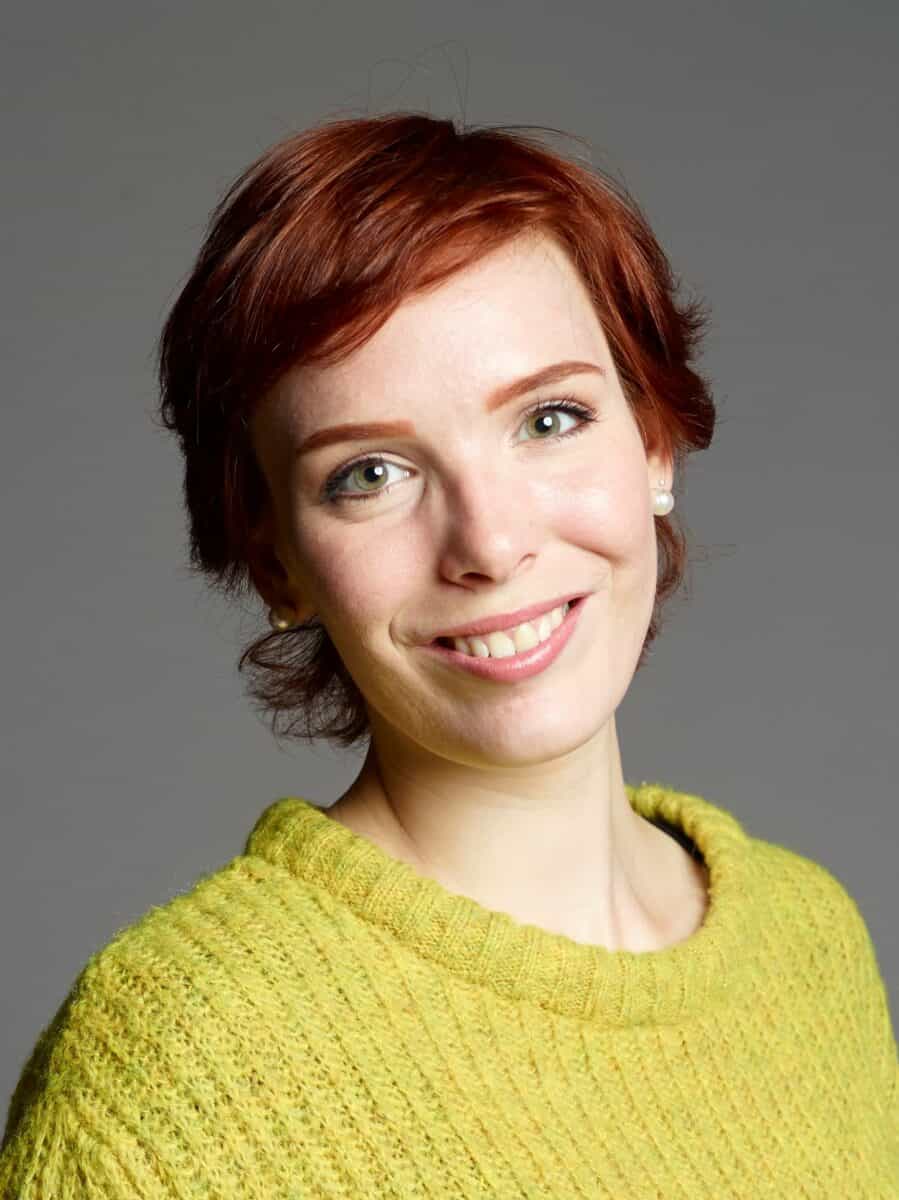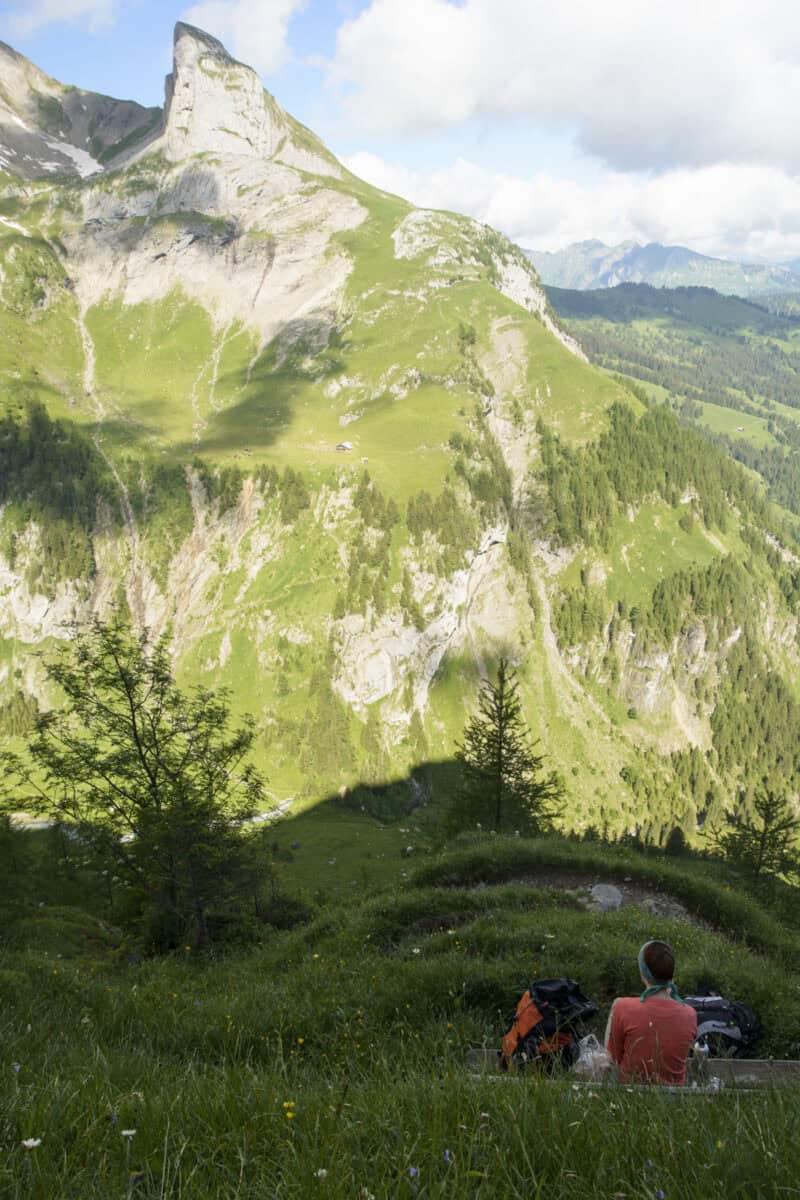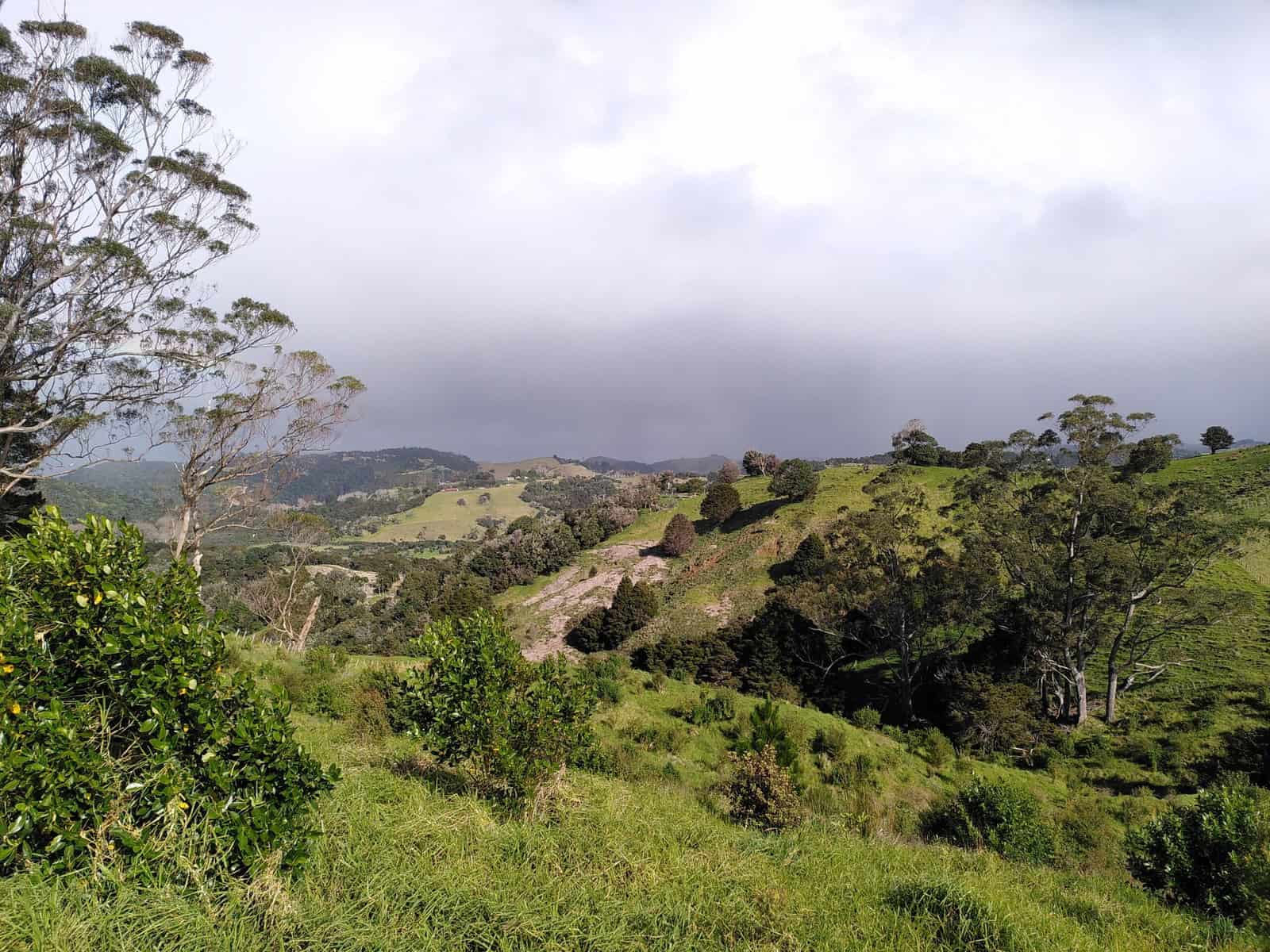From a young age, Sarah dreamed of becoming an astrophysicist. She pursued physics and maths at university before deciding to shift towards biology.
“It was hard at the beginning because I had no clue what a cell was,” says Sarah. “But I realized I had this massive passion for plants.”
After completing her undergraduate degree at the University of Lausanne, Switzerland, she pursued her Master’s in evolution, ecology and conservation at the same institution.
“Dioecious plant species have separate male and female individuals,” says Sarah. “Because of the different requirements for sex-specific reproduction, you can expect that they differ in their spatial distribution. I investigated that in my Master’s project.”
This research led Sarah to spend a lot of time in botanical gardens, where she found her happy place.
“At the end of my Master’s, a PhD position was advertised about rare plant species at the Botanical Garden of the University of Bern,” says Sarah. “It was the jackpot.”
For her PhD, Sarah looked at causes and consequences of plant rarity at several geographic levels. Specifically, she examined how regional and local plant rarity influence species distribution and fitness.
“I loved this PhD,” says Sarah. “A PhD is tough, and yes, it was not always easy, but it was an amazing time.”

The move to New Zealand
Sarah knew by the end of her PhD that she wanted a career in academia.
“I told my partner that I wanted to do postdocs abroad, as I was also aiming to improve my English and discover new ways of thinking,” says Sarah. “He said he would be happy to come with me.”
They made a list of tentative countries where they would both like to explore. With New Zealand on the list, Sarah found a postdoc position with the AUT Living Laboratories Project advertised. She was intrigued. The focus was on plant conservation, but it also had a human aspect that she had not yet explored.

“Conserving species and ecosystems is important to me, but it’s critical to do it respectfully and inclusively,” says Sarah.
AUT Living Laboratories is an experimental project set up to investigate optimal planting regimes for the restoration of native forests and ecosystem services on ex-farmland soils, develop productive partnership models with iwi and hapū partners and develop educational opportunities.
“It’s a massive project,” says Sarah. “It comprises three sites and lots of treatments, so it was a big challenge for me at the beginning to understand the big picture and the relationships between the sub-project parts.”
Sarah’s main task has been to analyse the data that were and are being collected at the experimental sites.
“I am mainly focusing on the environmental data and the tree data related to survival and growth,” says Sarah. “I am investigating whether restoration techniques for native tree species have resulted in differential survival, growth, canopy closure and drought tolerance. This can tell us the best way to restore native forests in previous agricultural lands.”
The project takes into account the human and cultural aspects of restoration as well as enacts Te Tiriti o Waitangi.
“Some of the lands we are working to restore were lands given back to Māori owners,” says Sarah. “In conservation, we need to approach restoration from a decolonisation perspective, a perspective of reparative economy and reparative ecology.”
Sarah’s future of research
Sarah’s postdoc ends in November, and she’s not certain where exactly she’ll go next.
“I’m very keen to continue research, that is what I enjoy the most,” says Sarah.
Sarah suspects that her passion for research will lead her to another postdoc. She plans to examine how rare and common plant species regenerate in a context of climate change and new plant communities at high elevation and latitudes. She specifically wants to study how conservation can be achieved with local communities in remote areas.
She would also gladly return to a botanical garden and is keeping her eyes open for curatorial positions.
“A position in a botanical garden would be very challenging but motivating,” says Sarah. “My aim is to do applied conservation in the framework of the botanical garden while also doing research.”
Where in the world Sarah will continue her career is anybody’s guess.
“I’m very open to where I’ll go next, and my partner is too,” says Sarah. “But staying in Aotearoa New Zealand is definitely something we would enjoy.”

The postdoc position with AUT Living Laboratories Project was funded by the BioHeritage National Science Challenge.
Jenny Leonard
